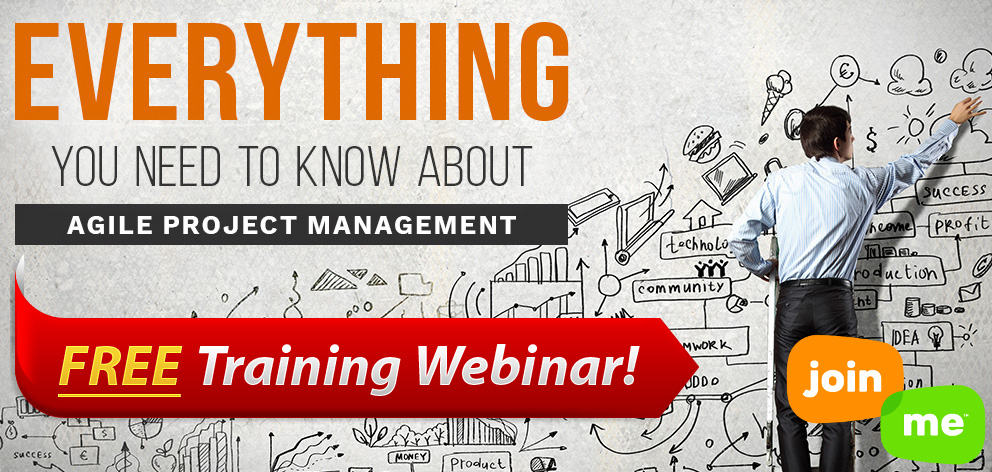In today’s world of fast paced technology and continually changing requirements and project scope, the need for Agile Project Management has greatly increased. With that, PMI has seen their PMI-ACP (Agile Certified Practitioner) certification as their fastest growing certification. Even those organizations and project managers who have been doing traditional project management for many years, are considering a hybrid approach (using both traditional and Agile approaches) or implementing Agile principles and/ or practices for traditional projects.
As we may know from our experience, the work of a project manager (PM) is akin to jugglers, constantly keeping the plates spinning, and juggling the project constraints of time, cost, scope and quality. How do they do all of this? Projects have much uncertainty, from start to finish. In particular, projects have the most uncertainty at the beginning of the project, making planning critical. One of the greatest areas of uncertainty is around the project Scope. Agile methodologies can be particularly helpful managing the uncertainty of project scope.
What makes a project an Agile Project versus a traditional project? An Agile project is a project which is adaptive or has an iterative or incremental delivery. A project can use rolling wave planning (where detailed planning is done later in the project and throughout the project), or any method in which work is delivered to the customer in small and frequent releases or packages. For Agile project management, open communication is necessary, particularly with the customer who will benefit from the objectives of the project being met. Agile project management provides rapid and flexible response to change and even welcomes change, as it will benefit the customer by providing them what they need and want.
One might say that the reason Agile methodologies exist is to counteract scope risk (or uncertainty). Risk awareness is certainly a part of Agile projects, although it is often not explicit. During daily stand up meetings, one question addressed is “What are the barriers to completing the work you have?” A main objective of this question is to uncover uncertainties in achieving the daily goal.
Agile principles and practices are used to: manage change, improve communication, reduce cost, increase efficiency, provide value to customers and stakeholders and decrease project risk. Agile is a great approach to project management, when it is needed, but it isn’t the most efficient or effective approach for all projects. It is best to use Agile for projects with a high degree of uncertainty or complexity. This includes projects where the scope is either not fully known at the beginning of the project, or likely to change throughout the project due to new technologies, or outside influences that are not under control of the project.
For Agile Projects, progress is measured by what is being delivered and what is working, so the desire is to focus on quality (aka customer satisfaction). This means testing first and testing frequently. This also means engaging with stakeholders (product owner, team and team facilitator). Lessons learned should be captured at the end of the project and throughout the project life cycle. Best practices include regular and iterative capturing of lessons learned through retrospectives, or the like. – Susan Parente, PMP, PMI-RMP, PMI-ACP, PSM I, CSM, CSPO, CISSP, CRISC, RESILIA, ITIL, MS Eng. Mgmt.
Coming soon….
“Everything You Need to Know about Agile Project Management”
Hosted by Susan Parente, PMP, PMI-RMP, PMI-ACP, PSM I, CSM, CSPO, CISSP, CRISC, RESILIA, ITIL, MS Eng. Mgmt.
Thursday, August 30, 2018
Free 1 Hour Webinar @ Joinme (click here to learn more)
10:00 a.m. Eastern, 9:00 a.m. Central, 7:00 a.m. Pacific
In response to the growth in adoption of Agile Project Management by small marketing teams and small business, PMO Advisory, a PMI® (Project Management Institute) Registered Education Provider and New Jersey’s leading project management training & consulting firm, is regularly delivering a 1 Day Agile & Scrum Fundamentals Workshop and a 2 Day PMI-ACP (Agile Certified Practitioner) Certification Prep Course. Both courses are offered regularly at the PMO Advisory training center in New Jersey and to people everywhere live instructor led online.
With our 1 Day Agile & Scrum Fundamentals Workshop ($299) our proprietary approach to hands on learning will give for small marketing teams and small business the ability and confidence to implement Agile methodologies on their first day back in the office. Our 2 Day PMI-ACP Certification Prep Course is designed to enable you to pass the Project Management Institute’s Agile Certified Practitioner’s exam on the first try. Click here to learn more, our next scheduled courses, and to receive a discount coupon for either our 1 Day Agile & Scrum Fundamentals course or our 2 Day PMI-ACP Certification Prep course.
PMO Advisory is excited to deliver these workshops to marketing professionals throughout the U.S. through live online instructor led delivery. There is no content difference between the in-person classroom experience and the online live experience – both include the same materials and curriculum. Today online courses boast the ability to break the virtual classroom into teams and team work spaces to work through the course. Webcams, and group-specific work spaces have enabled online training to feel more like an in-person experience. Learn more at New Jersey’s leading project management training & consulting firm, PMO Advisory.

